
Raspberry Pi Network Monitor using Zabbix and a 3" LCD display YouTube
Firstly, SSH into your raspberry pi from any system on your network using ssh pi@your-raspberrypi-ip-address. The default password of a raspberry pi running raspbian os is "raspberrypi", unless you have changed it. Once you are logged it, let's stay on the latest updates by running the following commands -

Monitoring a Raspberry Pi with Grafana, InfluxDB and collectd
Raspberry Pi Network Monitor. This repository includes instructions and configuration files for setting up a Raspberry Pi to monitor a network's connectivity status via a Grafana Dashboard through Prometheus and Telegraf data collection.

How to use Raspberry PI for network monitoring Desert Garden Care
The Raspberry Pi sits between the devices to be tracked and the internet (e.g., acting as a router or access point ). Unfortunately, this can slow down the network, which causes many to avoid the approach ( see the next section ). Router reporting Some modern routers provide features along these lines. But generally custom firmware is required.

Raspberry Pi Network Monitor in AWS — FMADIO
Step 1. Deploy Your Raspberry Pi Network Monitor Step 2. Install Raspbian Step 3. Deploy Monitoring Agents Step 4. Monitor Network Performance Step 5. Measure Network Metrics Step 6. Monitor Network Devices Step 7. Set Up A Network Monitoring Dashboard Step 8. Configure Alerts For Network Issues Step 9. Analyze Historical Data Step 10.
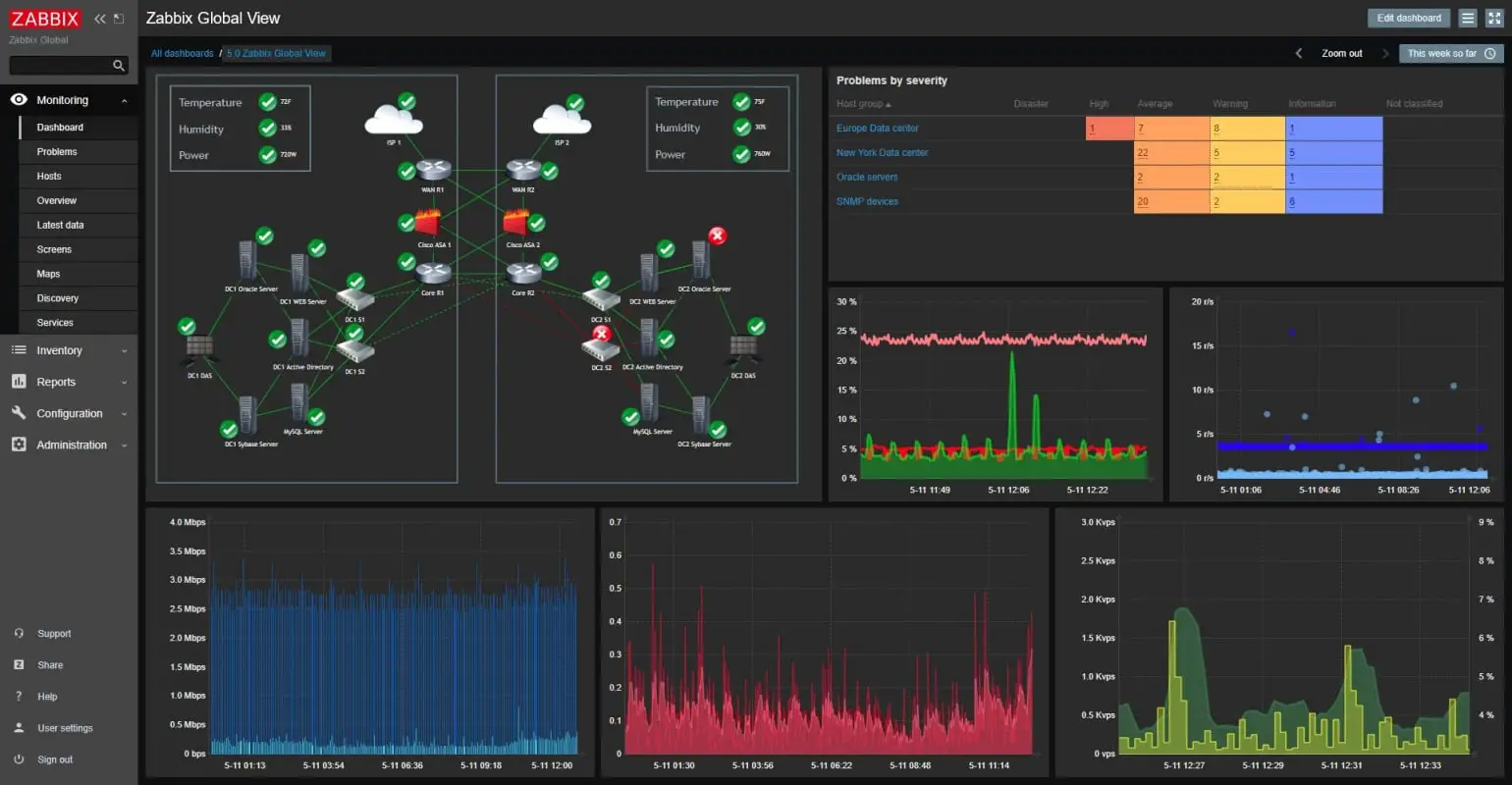
How to Install Zabbix 5 on Raspberry Pi (StepbyStep Guide)
Setting up the Homepage Dashboard on a Raspberry Pi by Emmet Published Jan 07, 2024 Beginner Media In this guide, we will show you how to set up the Homepage dashboard on your Raspberry Pi. Homepage is a stylish dashboard that you can use to display all your local applications in one central location.

Raspberry Pi Network Monitor with a Dashboard for Traffic
You need a network monitoring tool. While several solutions are available, the Nagios should be your first port of call. Although paid versions of the software are available, Nagios offers an open source network monitor build for Raspberry Pi. Why Set Up a Raspberry Pi as a Network Monitor?

Raspberry Pi Network Monitor with a Dashboard for Traffic
If you want to set up a Raspberry Pi network monitor, here's what you'll need to do. Table of Contents 1 - Creating a Raspberry Pi network monitor using NEMS 2 - How to install NEMS on a Raspberry Pi 3 - Signing in to NEMS on a Raspberry Pi 4 - Configuring NEMS on a Raspberry Pi 5 - Available NEMS dashboards for network and system monitoring

Use Raspberry Pi To Monitor Network Raspberry
Web-App Dashboard to monitor Raspberry Pi hardware and software status. Nothing more than Webserver + PHP required. - GitHub - femto-code/Raspberry-Pi-Dashboard: Web-App Dashboard to monitor Raspberry Pi hardware and software status.. and choose a more secure one at first setup and consider more security if your dashboard is accessible on.
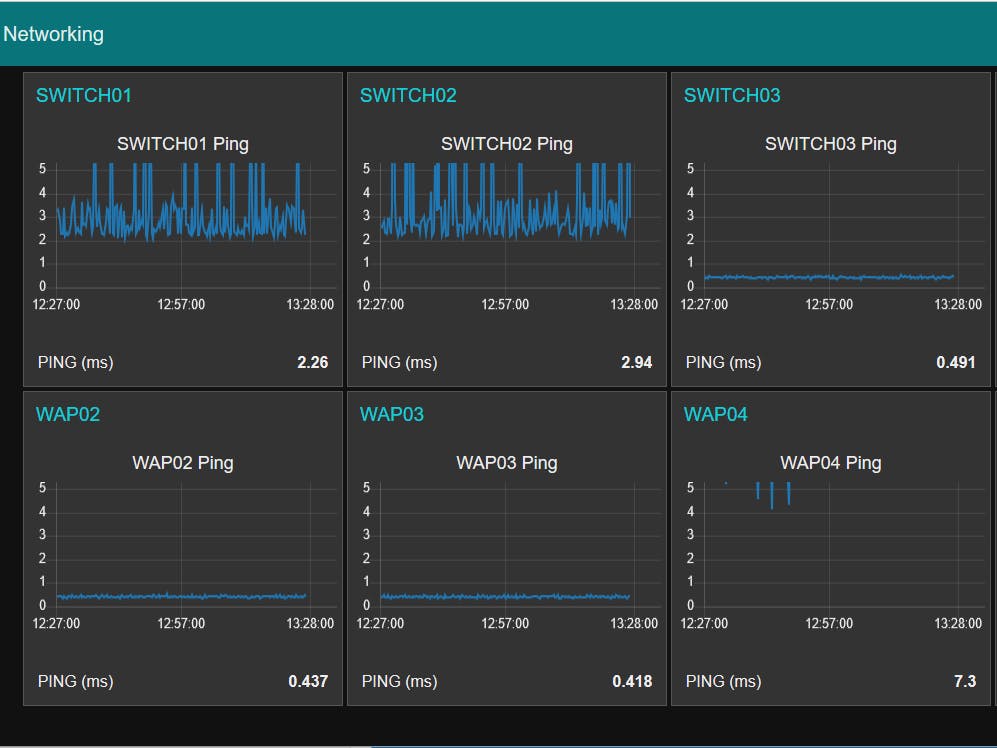
Network Monitoring using Raspberry Pi 3 and Node Red Hackster.io
The main purpose of the monitoring system is to check the upload/download speeds and latency on a user's network. The monitoring system needs to be cheap, portable, and work on both wireless and wired networks. Data collection and reporting are also important requirements of our monitoring system. Importantly, Raspberry Pi supports wireless.
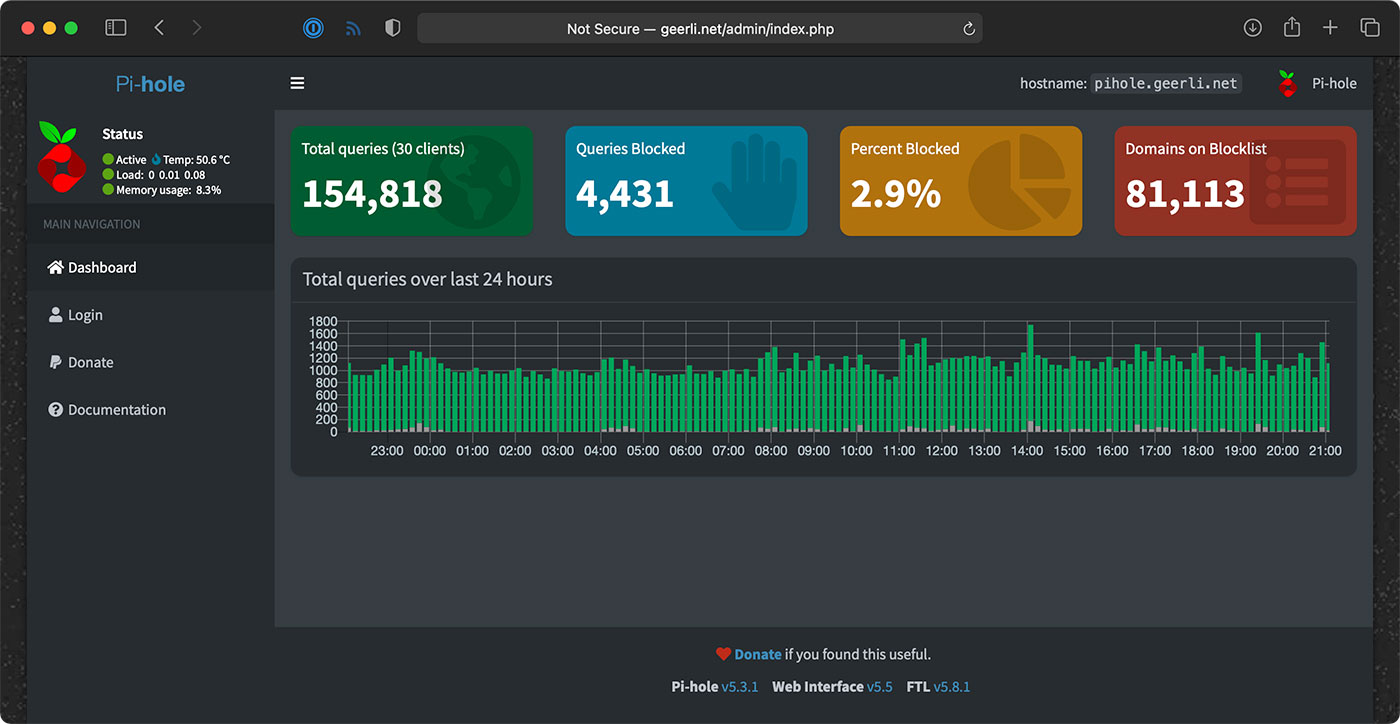
Monitor your with a Raspberry Pi Jeff Geerling
A Raspberry Pi can display a data dashboard by coding an app to run on the Raspberry Pi, or by connecting the Raspberry Pi to an external dashboard tool such as Tableau. Coding a dashboard on a Raspberry Pi can be done in programming languages such as Ruby, Python, R, and Julia.
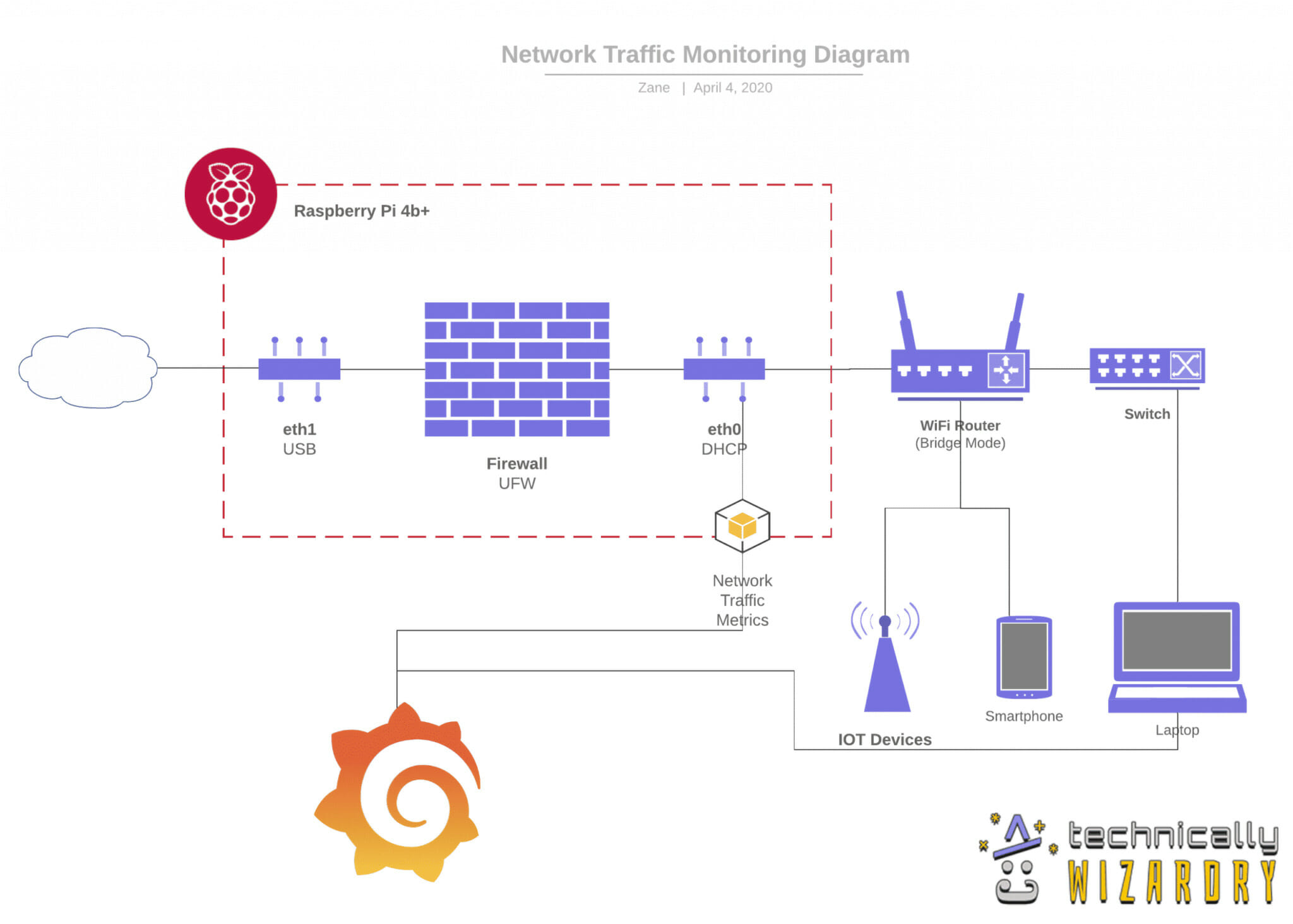
Raspberry Pi Network Monitor with a Dashboard for Traffic
Exchanging SSH keys. The first thing I did was create an SSH key on my Pi under the pi user account using the following command (using all the defaults when prompted): ssh-keygen -t ed25519 -C "pi-starlink". After the key is generated, run cat ~/.ssh/id_ed25519.pub to see the public key. Copy that key and paste it in a new line in the ~/.ssh.
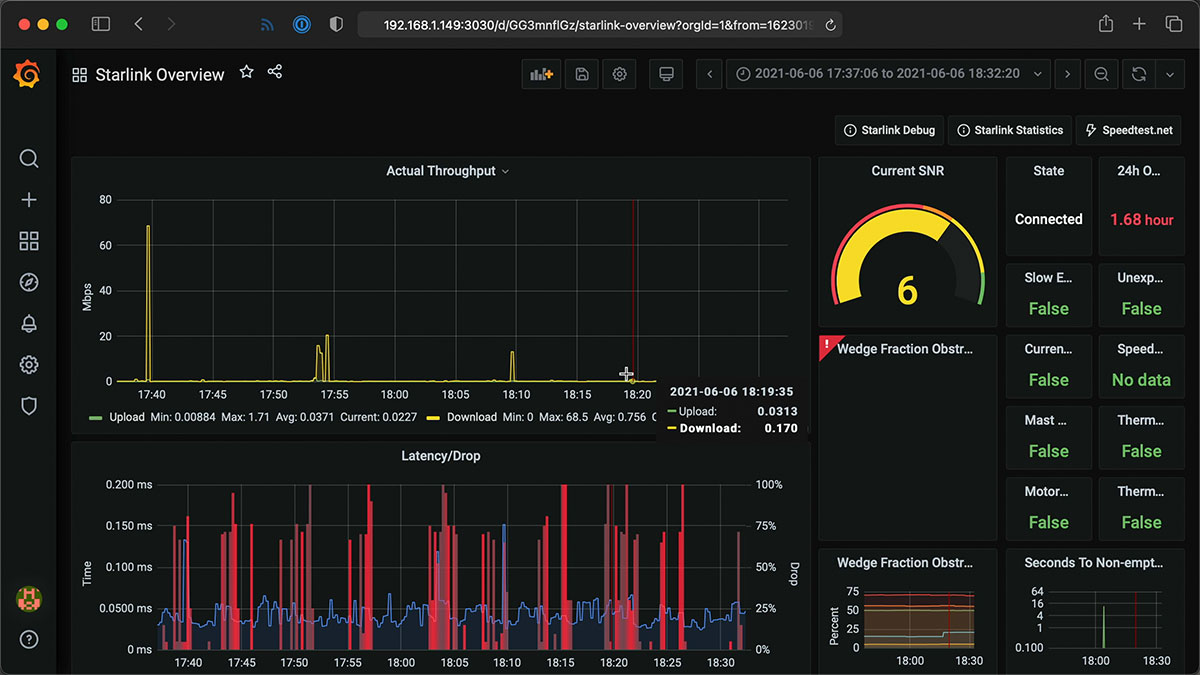
Monitor your with a Raspberry Pi Jeff Geerling
This video explains how to monitor the network using Raspberry PiRaspberry Pi 3 https://amzn.to/3lvG6jWRaspberry Pi 4 https://amzn.to/3HSDLaoSD Card SanDisk.
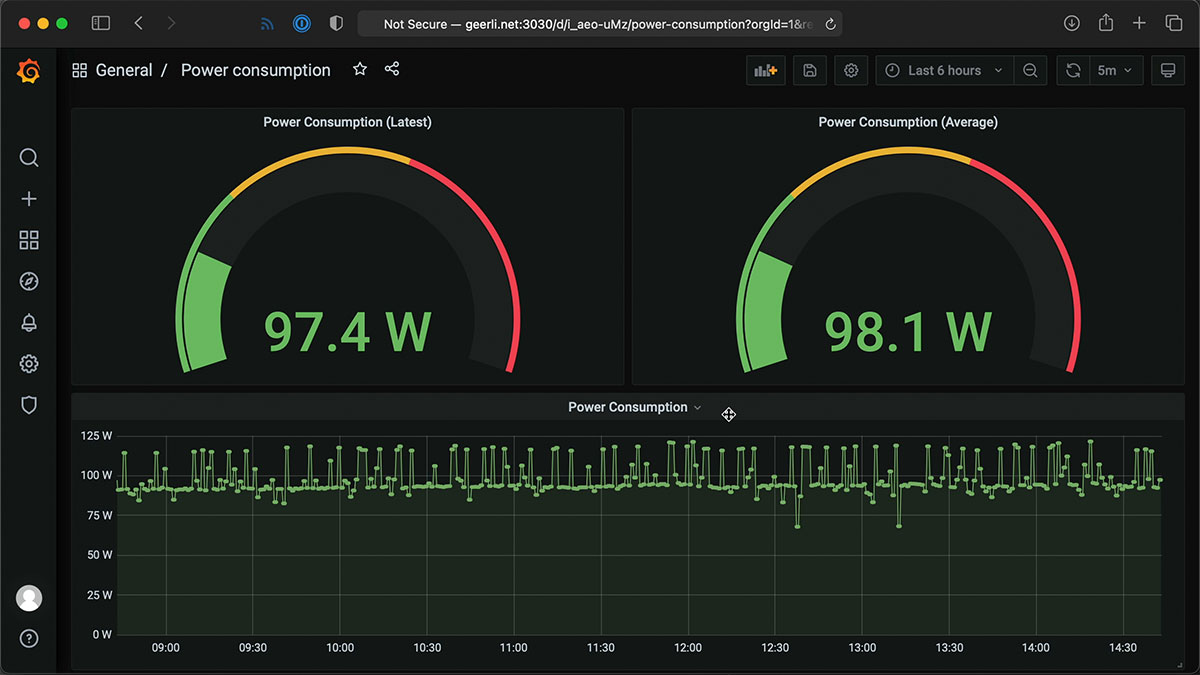
Monitor your with a Raspberry Pi Jeff Geerling
Step 1: Download Ntop Package Download the Ntop deb package for the Raspberry Pi from the official website. To accomplish this, use the wget command: wget http://packages.ntop.org/RaspberryPI/apt-ntop.deb Note: The official download links change over time. Make sure to check http://packages.ntop.org/ if the current link does not work.
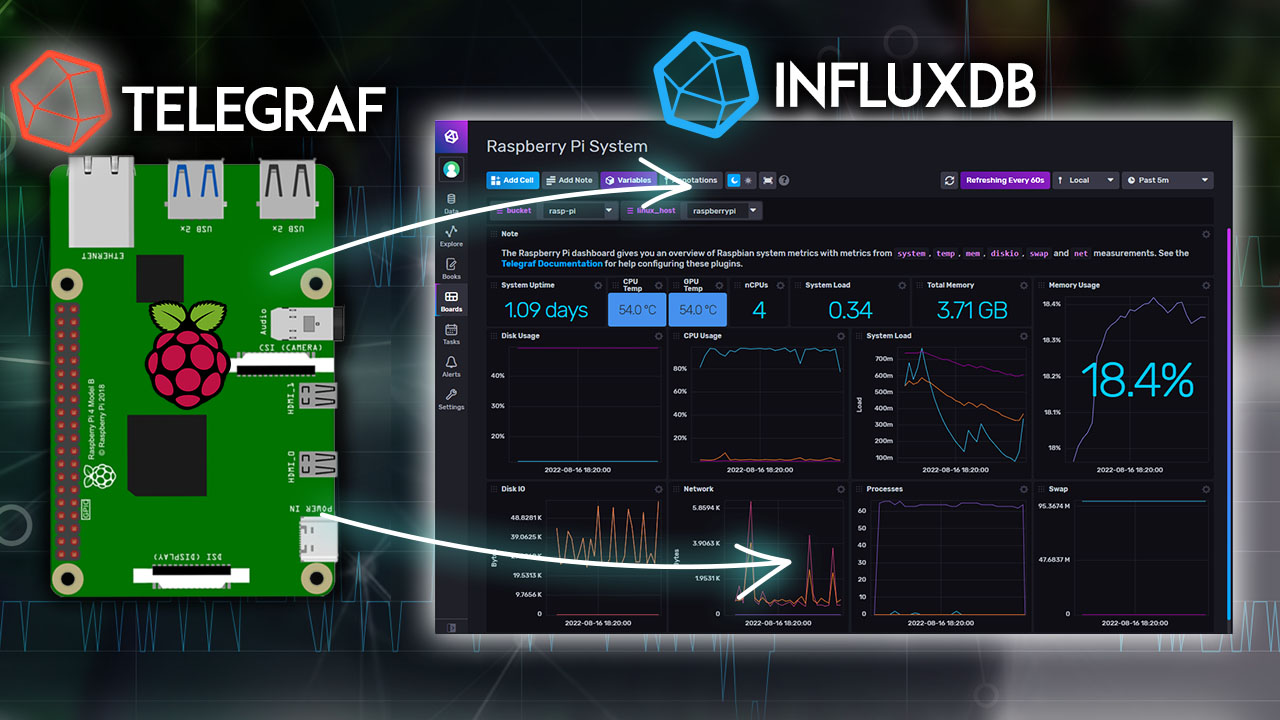
Monitoring Your Raspberry Pi System using InfluxDB Telegraf Random Nerd Tutorials
This dashboard contains multiples sections with the goal to monitor a full Raspberry Pi board or boards, we have some sections to monitor the Linux and machine overall performance, and temperature. Special thanks to Lex Rivera for his Linux System dashboard
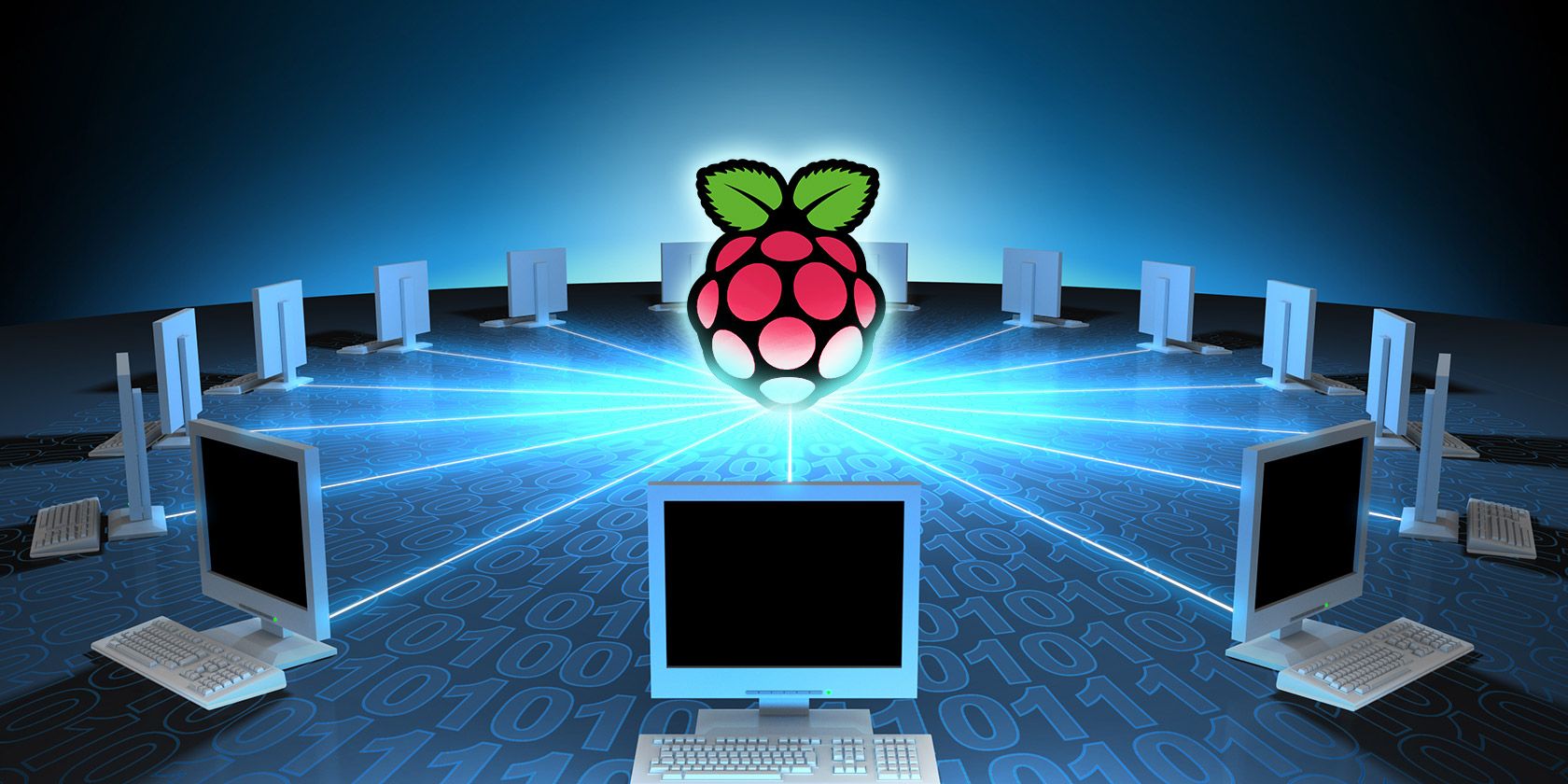
How to Turn Your Raspberry Pi Into a Network Monitoring Tool
1. Display a performance dashboard with Linux Dash Linux Dash is a simple web-based dashboard that displays the performance status of the device it's running on, such as a Raspberry Pi. Being web-based, any computer with a web browser can view the dashboard to monitor how the device is running.

Grafana Monitoring on a Raspberry Pi Alex Hyett
Each device you want to monitor is a Node. To install: sudo apt-get install munin-node. Give each Node a unique name and grant the Master access to this Node: sudo nano /etc/munin/munin-node.conf. host_name YourNodeNo1NameHere # name of this Node allow ^192\.168\.0\.0$ # IPv4 of Master in RegEx format.